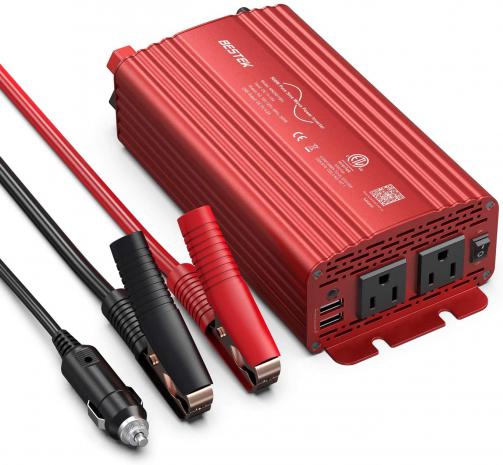
Breaking News
 No One Does It Like Johnny Carson | Mark Malkoff #470 | The Way I Heard It
No One Does It Like Johnny Carson | Mark Malkoff #470 | The Way I Heard It
 Webb is ready - the open source tool that will decode the Epstein files for EVERYONE
Webb is ready - the open source tool that will decode the Epstein files for EVERYONE
 Trump administration ending Minneapolis immigration Operation Metro Surge
Trump administration ending Minneapolis immigration Operation Metro Surge
 TUMBLER RIDGE MASSACRE: The Trans Shooter Media TRIED TO HIDE...
TUMBLER RIDGE MASSACRE: The Trans Shooter Media TRIED TO HIDE...
Top Tech News
 Drone-launching underwater drone hitches a ride on ship and sub hulls
Drone-launching underwater drone hitches a ride on ship and sub hulls
 Humanoid Robots Get "Brains" As Dual-Use Fears Mount
Humanoid Robots Get "Brains" As Dual-Use Fears Mount
 SpaceX Authorized to Increase High Speed Internet Download Speeds 5X Through 2026
SpaceX Authorized to Increase High Speed Internet Download Speeds 5X Through 2026
 Space AI is the Key to the Technological Singularity
Space AI is the Key to the Technological Singularity
 Velocitor X-1 eVTOL could be beating the traffic in just a year
Velocitor X-1 eVTOL could be beating the traffic in just a year
 Starlink smasher? China claims world's best high-powered microwave weapon
Starlink smasher? China claims world's best high-powered microwave weapon
 Wood scraps turn 'useless' desert sand into concrete
Wood scraps turn 'useless' desert sand into concrete
 Let's Do a Detailed Review of Zorin -- Is This Good for Ex-Windows Users?
Let's Do a Detailed Review of Zorin -- Is This Good for Ex-Windows Users?
 The World's First Sodium-Ion Battery EV Is A Winter Range Monster
The World's First Sodium-Ion Battery EV Is A Winter Range Monster
 China's CATL 5C Battery Breakthrough will Make Most Combustion Engine Vehicles OBSOLETE
China's CATL 5C Battery Breakthrough will Make Most Combustion Engine Vehicles OBSOLETE
The Must Have Sine Wave Inverter, The Real Secret To Solar Power

Solar panels themselves are ubiquitous in our society, and they can be seen on everything from pocket calculators to traffic signals, from massive solar panel farms to a single emergency solar panel system. However, not many people pay attention to or even know about the humble inverter. The inverter is the device that makes solar energy in our homes possible in the first place.
Solar Power Inverter
To understand what an inverter is, we must first understand the way a solar panel works. Solar panels are comprised of wafers of silicon that, when exposed to sunlight, produce electrical energy. The sunlight "excites" the electrons within the silicon, spurring them to motion, which generates electricity as a byproduct. Each individual silicon wafer (called a cell) is then tied to the other cells in the panel. Then, their output from the panel manifests itself as a set of wires to carry the electricity.
What most people don't understand is that these wires don't carry the sort of power you'll typically find coming out of the wall plugs in your home. They carry direct current, or DC voltage. DC voltage is the same sort of power that you'll find in car batteries. Regardless of electrical engineering prowess, most people realize that the type of electricity produced from a car or even a D cell battery is not the same type of electricity found inside their homes.



